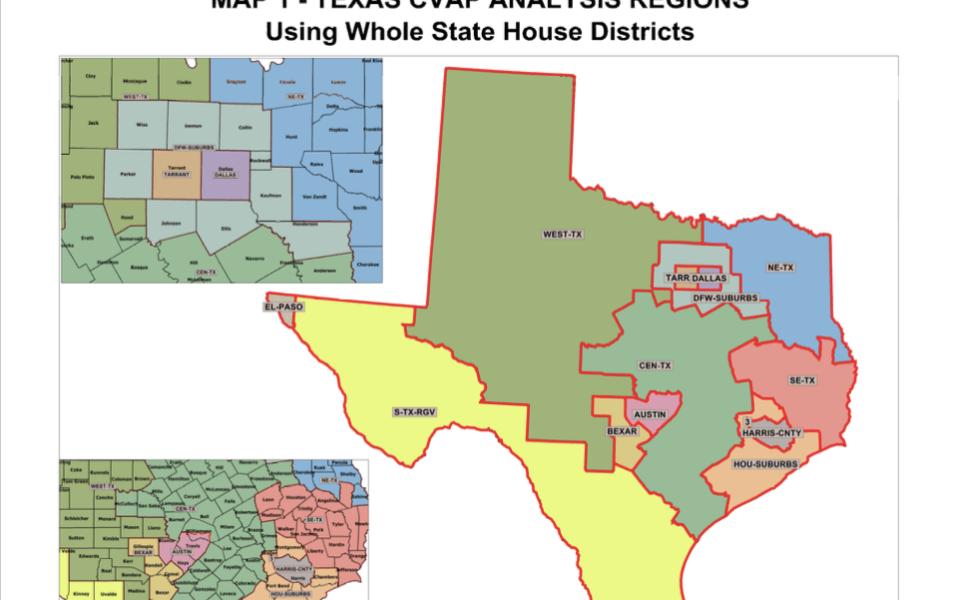The line connecting efforts to lock in white, Republican control of the US political system runs from North Carolina to Texas, and through a federal courtroom in New York City.
The revelation that US Secretary of Commerce Wilbur Ross’ plan to add a citizenship question to the 2020 Decennial Census grew out of an effort to maximize partisan advantage for Republican legislators, and emerged in a trove of documents obtained by plaintiffs opposing North Carolina’s extreme gerrymandering scheme. In a surreal turn of events, the daughter of the late Republican consultant Thomas Hofeller who was evidently sympathetic to those who want to undo her father’s political handiwork, turned over his papers to lawyers challenging the Republican redistricting scheme.
Much as Barack Obama’s 2008 victory in North Carolina prompted a wave of voter-suppression efforts by Republicans to ensure legislative majorities in Raleigh and in the state’s congressional delegation, Republicans have cause to worry that the growing diversity of the Texas electorate will weaken their hold on that crucial state. A redistricting consultant who worked closely with the National Republican Congressional Committee, Hofeller almost singlehandedly held back a blue tide in North Carolina by drawing maps after the 2010 Census, ensuring that a state divided right down the middle politically would reliably elect 10 Republicans and three Democrats to Congress.
Documents filed by the ACLU in the US District Court for the Southern District of New York show that as early as 2015, Hofeller proposed adding a citizenship question to the 2020 Census to allow legislative districts to be drawn by measuring citizen voting-age population as opposed to total population. In a secret report commissioned by billionaire hedge-fund manager Paul Singer, Hofeller reflected that “a switch to the use of citizen voting-age population as the numerical basis for redistricting would be advantageous to Republicans and non-Hispanic whites.” The report used Texas state House districts as a case study.
By removing non-citizens from the redistricting base, the population of heavily Latino and Democrat-leaning districts would shrink. Hofeller reflected that “the greatest loss would be in South Texas, El Paso and the Rio Grande Valley,” which he found would lose 2.6 state House districts overall, along with the population bases in the Democrat-leaning areas surrounding Dallas, Fort Worth and Houston. As a result, Hofeller said, “Democratic districts could geographically expand to absorb additional high Democratic precincts from adjacent Republican districts, strengthening the adjoining GOP districts.”
Hofeller was paid for his work through the Washington Free Beacon, a conservative website financially backed by Singer. The purpose of the secret report was not journalistic, but rather to help Singer decide whether to fund the Evenwel lawsuit, which sought to force Texas to use citizen voting-age population in place of total population to determine district lines. In his email correspondence with one of Singer’s representatives, Hofeller wrote, “My position is that the report would not be attributed either directly or indirectly.” He added, “It’s just that I have to keep my public statements simple outside of the expert court witness work I do.”
The reasons for Hofeller’s secrecy aren’t hard to divine. The final conclusion of his unsigned report spells it out: “A proposal to use CVAP can be expected to provoke a high degree of resistance from Democrats and the major minority groups in the nation.”
So, when the Trump Justice Department sent a letter to Commerce in December 2017 formally requesting that a citizenship question be added to the Census questionnaire, a different rationale was cited.
“This data is critical to the department’s enforcement of Section 2 of the Voting Rights Act and its important protections against racial discrimination in voting,” wrote Arthur E. Gary, general counsel for the Justice Management Division.
On May 30, the ACLU submitted Hofeller’s 2015 report to US District Judge Jesse Freeman as evidence in its lawsuit attempting to block the Trump administration from adding the citizenship question. The ACLU requested “an order to show cause whether sanctions or other appropriate relief are warranted in light of new evidence that contradicts the sworn testimony of Secretary Ross’s expert advisor A. Mark Neuman and senior DOJ official John Gore.” The ACLU contends that Neuman, a longtime friend of Hofeller who served on the Trump transition team, and Gore “falsely testified about the genesis of DOJ’s request to Commerce in ways that obscured the pretextual character of the request.”
The Justice Department responded on Monday, asking Judge Furman to deny the ACLU’s motion for sanctions. Furman has already ruled that the citizenship question cannot be included in the 2020 Census questionnaire, and federal judges in California and Maryland have reached the same conclusion in separate lawsuits. The DOJ charged on Monday that the ACLU’s release of Hofeller’s study amounts to an attempt “to drag this court” into an “eleventh-hour campaign to derail the Supreme Court’s resolution of the government’s appeal.”
Lawyers for the ACLU and the government were scheduled to appear before Judge Furman today to argue the matter.

Join the First Amendment Society, a membership that goes directly to funding TCB‘s newsroom.
We believe that reporting can save the world.
The TCB First Amendment Society recognizes the vital role of a free, unfettered press with a bundling of local experiences designed to build community, and unique engagements with our newsroom that will help you understand, and shape, local journalism’s critical role in uplifting the people in our cities.
All revenue goes directly into the newsroom as reporters’ salaries and freelance commissions.


Leave a Reply